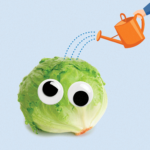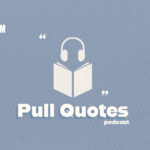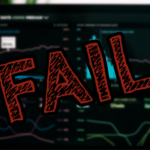Silas Le Blanc: It was August of 2022, and Radheyan Simonpillai the editor of Toronto’s Now magazine, tweeted out a definitive-sounding message. Here’s what he wrote: “This is it. This is the final masthead. This is the final team, owed 21 weeks of salary who put together a spectacular issue, dropping tomorrow night. I am so incredibly grateful to them all and also to the people who gifted us their contributions to this issue.”
SL: There’s a lot to unpack in this tweet. You may be scratching your head, asking “wait, why weren’t people at Now magazine being paid for 21 weeks? Why were they printing their last issue? And what’s happening with Now, now?” Spoiler alert: the magazine’s story isn’t over yet.
Tara De Boer: For the past several months, the Review’s print managing editor Anthony Milton has been nose-deep into reporting on the five year fallout of Now magazine, the decades-old alt weekly arts magazine in Toronto. Spanning over five years, it’s a story of twists and turns and reveals the lengths journalists are willing to go when they care so deeply about the work they do. Anthony gets into all of it in his long form story for the Spring 2023 issue of the Review of Journalism.
We sat down with Anthony to find out how he unveiled five years of mismanagement, what challenges did he face, and how did he decide to wrap up his piece in time for print, even as the drama in the Now newsroom continues.
[Theme music starts playing quietly in background]TD: Welcome back to the sixth season of Pull Quotes, here’s episode 2. We’re your hosts Tara De Boer, Tim Cooke and Silas Le Blanc
[Theme music plays, louder]TD: Welcome to Pull Quotes, Tony. How are you today?
Tony Milton: I’m great. Thanks so much, Tara.
TD: So glad you’re here with us. I’m super excited to talk about your story. But first, I just want you to give our listeners a sense of who you are and what your journalistic interests are.
TM: Okay, sure. So my name is Anthony Milton. Tony, for short. I’m a master of journalism student at Toronto Metropolitan University in my second year, doing the Review of Journalism class. My interests… I’m kind of all over the place. I’ve got a huge interest in long form narrative journalism, but my background is also in data science and analysis. So data journalism is something I’m really interested in as well and I’m just trying to see how I can put those two things together in various different ways.
TD: Give us a little synopsis of the story that’s going to be published in The Review this spring that you worked on so closely for the last number of months.
TM: So the past several months, I’ve been working on a story about the past five years at Now magazine, which was an alt weekly… is an alt weekly in Toronto that’s been going since I believe 1981. And it’s been a huge fixture of the city for many, many years. But recently, it’s been falling on hard times, which I suppose we’ll get into won’t we?
TD: Absolutely. So I’m curious, so this has been going on for a number of years, but what initially sparked the inspiration for you to cover this story?
TM: So last summer, I knew that I had to do a big story for the Review. And I was scouting out ideas. And a colleague of mine at the time, said she, had been at Now, and was waiting on back wages from them, because they just stopped paying it at a certain point. I went “whoa, what the hell?” And yeah, it turns out it had been in the news. Around February of 2022, Now’s parent company had essentially stopped paying most of its staff, and pay was coming in increments, and eventually just ran out altogether. And many staff were owed, like, you know, several weeks and months worth of owed wages and I went, holy cow, you know, how could something like that happen? How do we get here? And also, how did that happen to Now? It seemed like such a strong publication for so long.
TD: So then where did you go from there? Like, how did you even start this process of digging deep into this long story?
TM: Yeah. So initially, it was pretty simple. I basically went on Now’s masthead and also used the Wayback Machine to get a sense of who used to be on Now’s masthead and tracked down essentially as many of those people as I could, for interviews. Actually, before that happened, I did a bit of secondary research to begin with and I found that a couple people had already gone on the record about what happened. I think Norm Wilner, who was their film critic, had gone on Canadaland, I want to say around September of 2022, but correct me on that. And he had basically just gave his whole side of the story. And from that podcast alone, he gave me the sense that, a new company had taken over, the– they had made perhaps some poor decisions, the pandemic had really impacted things. And they’d wound up in a situation where there were a lot of employees that were unpaid and by the sounds of it, at least from, you know, the way Wilner was speaking, very frustrated with decisions that had been made and the situation that they found themselves in. And as I started looking around on Twitter, it’s like, yep, turns out there was, you know, there were plenty of people that were very vocal. So I kind of knew who to reach out to. I think the first phone call I had was with Radheyan Simonpillai who was, who took over essentially, as the acting managing director, or managing editor of Now after most people had jumped ship because it stopped paying them. And he kind of led the effort to put out the last print issue in August. I think the work was done in August, and it was published in September, just in time for TIFF. So he was kind of, you know, the last… he came across as the last man at the helm for that period of Now. And so he, I think he was one of the first people I managed to get in touch with. And he basically confirmed that yep, there’s totally a story there.
TD: So when I read this story—which is amazing, and everyone should go read it—the words that stand out to me are just like: chaos and frustration and confusion and anger. Like all these things are just happening and I think especially the way you wrote it like that really came across well. So I’m wondering, how was it interviewing these sources, who were so close to this, like, this was their job, they’re devoting so much of their time to it, they weren’t getting paid, What were those conversations like? And how did you go about them?
TM: Like I said, by the time that I came across the story, a lot of some of these folks had already been in the media already talking about this stuff and they’re media people already, right. So they kind of knew how it worked. I think in a lot of cases, you know, they had the chronology pretty well remembered and so they were just able to walk me through it and be like, this happened, this happened, this happened, this happened. It was outrageous. You know, and that anger was very clearly there. So those weren’t difficult interviews. Most of these people, they were happy to talk about their experiences, I kind of got the sense of many of them had done so already in a similar kind of capacity, and just wanted to get the story out there and wanted to communicate their frustrations, and just the injustice that they felt they’d suffered because the publication that they, worked so hard for, had gone under, and also, they weren’t paid as they tried to save it from happening.
TD: So I know this took place over five years, so that’s quite a long time and there was a lot to include. Could you speak to some of the challenges you face covering this huge story with lots of voices, lots of opinions, and just a lot of different factors that led to this kind of failure, essentially?
TM: Totally. Yeah, I think one thing I should clarify at the outset is that when I started this, I thought it’d be a two-year story. You know, I thought, okay, you know, Now magazine gets sold by its own- its longtime owner, Alice Klein, and I should say, part owner, she founded it along with Michael Hollett and a few others, accounts differ. In 2016, Michael Hollett, essentially stepped back from the business and Alice Klein wound up with the majority of its ownership shares. It’s complicated, but she was essentially the owner and publisher for a fair few years. So I thought, okay, well, you know, it leaves Alice Klien’s hands and then it goes into these completely new people. And then lo and behold, it falls apart. Okay, two years open and shut. But as I started to talk, talking to people, you know, even those who had plenty to say about the new owners, the point they made was, you know, Now did not start falling apart, when Media Central bought it, the cracks were forming way, way beforehand. You have to go back further. I went, “Oh, crap,” you know, because at this point, I was hearing… I was having people tell me, like, two years’ worth of events. And so, you know, I could barely hold all that stuff in my mind, all at once. And then people are telling me no, but you have to go get more. So I did. I interviewed some folks, like Jonathan Goldsbie, who had left before the new owners took over, but were heavily involved in the union that represented Now staff back in 2016, through to, you know, around 2017. It turns out, there was union struggles between… labour struggles between the labour, represented by their union, and management led by Alice Klein. The paper was struggling. The internet was really cutting into its advertising dollars that sustained it for so long. It was, atrophying. There were less and less people in its big office every day. It had a history where times were good for the most part of the magazine and so the union could bargain year over year for better and better wages and protections of benefits and whatnot for its employees. And at a certain point that started to go the other way and that caused a lot of conflict, where things were getting worse, actually. And, you know, they really had to bargain for the soul. So if we’re thinking about… in the context of there being a labour issue right now, with the employees not getting paid. Well, it turns out, there were labour issues for much longer beforehand, and those kind of came down to the soul of the publication, they were, you know, debates about whether or not Now could continue printing and continue being alive as early as, if I recall correctly, 2016. So essentially, right, like the labour issues and precarity at Now, started way before Media Central took over. And as soon as I started putting that together, I realized, okay, you know, it would not be telling the full story, if I just laid this all on Media Central. That wouldn’t be fair to them for one thing, and also the reader has to understand that things have been difficult for a really long time. And there are various factors at play.
TD: So was it your assumption that, like, things were all fine and going great until Media Central and then that kind of changed with your interviews or were you getting hints of that in your research?
TM: I already knew… in Norm Wilner’s podcast like he talks about, them suffering a pay cut under the original management, under Klein, before Media Central took over because that’s what was necessary to keep the company solvent, essentially. So I already sort of knew that. I think also, like, as I started talking to people they just… it turned out there was just so much, there was just so much stuff going on prior to Media Central that I don’t think I assumed everything was hunky-dory, I just didn’t know enough to make an assumption like that. But as I learned more and more, I was like, okay, you know, there was a lot going on, and the arc of the story in my mind began to change.
TD: Did that send you back to like, square one, essentially, where you felt like you would… you had a lot on the cutting board? And you have to cut that down?
TM: Yeah. So I had a great editor, Tim Falconer, who, in my first draft, it was, you know, something like 5000 words, on just those two years. So just the Media Central era. And what he told me over and over again, was stop clearing your throat, get to the point, you know, cut the introductions.
TD: That’s a great line.
TM: Yeah, and it stuck with me all through. And you know, now as I find myself in positions editing other people’s things, I can hear him whispering to me, “cut the introductions. Stop clearing your throat.” And so yeah, I mean, I wrote like a first draft, that was just the Media Central stuff and it was way too long. And I went through it, and I cut and I cut, and I cut and I cut. And that started to open up space, for me to still have a 5000 word story, but just cover a lot more basically. And I think, eventually, I just sat down, and I rewrote pretty much the whole thing. Because, you know, it would have been too hodgepodge. The writing, wouldn’t have been consistent throughout had I taken a first draft that was about essentially a different story and then tacked on a bunch of introduction from like, three years prior. So there was a point, I think around my second draft, where I just, like, rewrote it top to bottom. And that gave me a better sense of what was worth including from both eras.
TD: Is there anything you left out that you still wonder about, that you should have included or that for some reason you chopped?
TM: I think there’s a lot of anger out there. Things did not go well. People were left unpaid, company’s, aspirations did not come to fruition. It was, you know, even the most recent sale of Now, which was also a big twist, turns out, it didn’t die, it got bought by someone else. There’s even anger towards where the new owners are taking things. And so what I really thought about throughout this was that this is a story about a publication, and what happened to it and told through the eyes and the experiences of people who were working there. I did not want to turn this into a shouting match between, you know, different factions who were angry at each other. There’s a couple of points in there where I include some sharp comments, but I did so judiciously because what I wanted to show was that there were people who were there for a long time, who had one particular way of doing things. And then there were newcomers who had different ways of doing things and different interests. And, you know, sometimes those groups didn’t always see things the same way. They kind of baffled each other. And so I felt like that was an important thing to get across– the sense that, you know, there was surprise, and people were saying things that other people thought sounded ridiculous. That was important, because it gets the sense of people are– there were different attempts being made to take this publication in the direction where it can be sustainable. But those don’t make everyone happy. Right. And not everyone agrees. So in the cases where I include sharp comments to that degree, that’s why I did it. But you know, yeah, I heard, I heard terrible things about various different people in the course of this reporting, and I didn’t put them in because this is not, that wasn’t the point.
TD: Now you get to the end of your story and you mentioned that this story is ‘still being written.’ So it’s still unfolding, as recent as December and January 2023. So I’m curious, what do you think is going to happen next?
TM: That’s a super good question. And I mean, the sale of Now’s digital assets, specifically, to Gonez Media was a super late breaking development. It happened after I submitted the third draft of my story, and I was like, on Christmas vacation, this happened. And while it’s good news for the brand, reading that story that morning, I went, “Oh, no.” I thought I had to go back, right? So yeah, I did an amendment to the story and added a quick note about what happened. What I think is gonna happen… I mean, I’m not sure. What’s interesting is there’s already conflict, about the direction that the new owners are taking it in. I recall seeing a story just recently that was accusing them of running a story that was written in a transphobic way, because they had written something along the lines of, I can’t even remember but it was like something about transgender people, “what do you think about this?” As though it was like inviting debate on a topic that, you know, impacted the humanity of trans people. And so there’s already been, you know, accusations about that. Another thing I find interesting is that they just bought the digital assets. So you know, if you think about the long arc of Now, it was a paper, for the longest time, I mean, that was the main product, it was this broadsheet that was in physical boxes all around the City of Toronto, that was in every café. And you know, while you’re waiting for your friend to get there, you’d flip through it and you’d find out, like, what was going on that week. That was kind of its raison d’etre. And now, you know, through the Media Central years, there were clear efforts by the company to digitize it. And, you know, bring it to the modern world of like social media influencers, and sponsored content and Contra deals, and things like that they were very digital based. You know, in the later half of 2021, I want to say, they were working on launching a substack-like platform, they were working on launching a news aggregator. So there were all these attempts to bring Now into the digital age, and also use Now’s cachet to sell products that were very much digitally-focused. So even before the sale, there was all these attempts to make Now a digital brand. Now, it’s super interesting to see that Gonez Media just bought the digital stuff, you know, looks like they’re thinking along the same lines. Publishing a broadsheet paper just isn’t doable anymore. So let’s take the digital stuff. The real question there, though, is, what does that do to the editorial? It was an alt weekly, it was alternative, it had this, like, really strong lefty kind of point of view, they were covering shows and concerts that the mainstream media just wouldn’t bother with. And now it looks like it’s being taken in a slightly different direction. It’s got, it’s one of, I think, perhaps the only Black-owned legacy media publication in the country now, because Gonez Media is now in charge of it. And so perhaps there’s going to be an editorial shift there, perhaps that is good and representative of what, you know, of another community that hasn’t… that’s been underserved by the mainstream media. But it doesn’t seem to be quite the same thing as what Now was traditionally. And so there’s more than likely going to be people who miss that and…But then again, perhaps they’ll carve out a new niche that is equally as important. It just seems a bit too soon to tell.
TD: So I’m wondering, for you, as someone who’s entering into the industry as a journalist, what did this reporting on this story and writing about it reveal to you about the industry, and also journalists and their relationships to their work?
TM: I think it [laughs] it kind of revealed that, you know, we’re vulnerable, to be exploited, and to exploit ourselves for the love of the kind of work that we’re doing. This is something I heard a lot from the folks that had stayed on, even after they’d stopped being paid, you know, reflecting on “how on earth did they get me to do that?” But it wasn’t, “they got me to do that.” It was “I knew that if I did not stick around, things would fall apart.” And at that point, you know, you’re not working for–you are working for a wage, because you have to stay alive–but you’re also working for a love of the publication. But that leaves you really vulnerable. Because that means that they can kind of do anything to you. You’re gonna stick around no matter what? All right. Well. Even if you’re not being paid, even if you’re working 80 hours a week, even if you’re not doing what we hired you to do anymore. I don’t think management was under any of the owners. I don’t think they were being, you know, explicitly cruel, or really trying to take advantage of people. But at the end of the day, that’s sort of what ends up happening by the logic of things. If a company runs out of money, and it can ask its employees to stick around and keep it going, and they’re willing to do so for no pay. Well, then they’re going to be exploited one way or the other, even if it’s by no one in particular.
TD: So you think it could happen elsewhere?
TM: Absolutely. I think it could happen to any one of us. Say, the Toronto Star runs out of money tomorrow. Is that newsroom just going to shut down? Is everyone gonna go home? I kind of doubt it. You know, I could see Now happening again, because part of what let it happen was the fact that journalists value the work that they’re doing over and above the wage they receive for doing it. They think it’s important, and it is, but that leaves them vulnerable. And so for me going out into the world, you know, it’s made me think very carefully about the kind of things that I value, but also the kind of jobs that I’m willing to get into because I want to get, I want to go somewhere that where my skills are really valuable, and where I will definitely be respected for them. Because I know that myself personally, I would do this work no matter what.
TD: For sure. Yeah, I guess, you know, it’s a story of anger and frustration, but it’s also a story about journalists caring, right? Like they’re caring about what they’re putting out there. They care about this, the name of the publication. And that’s sort of what led to what happened.
TM: Yeah, there’s a lot of love there. And I think, you know, if the story is negative, it’s because that love just, you know, never got rewarded.
TD: Absolutely. Okay, Tony, what do you hope people get from reading this story?
TM: I hope they get a complete view. And I say that because, you know, for a story that’s been going on for five years. And it’s been happening in various episodes, what I really wanted to do here is tie it all together. Because various people who have been paying attention know that each of these individual events occurred, you know, you can piece it together from secondary research for the most part. But I wanted to, like, put it all in context and show that, there is a story here, a story of a story of people working for the love of a publication, and the ways in which that love is and is not rewarded. I wanted to show what it looks like when a media model slowly, slowly becomes less and less viable. And what happens to the people who both want to try and make it sustainable, on the business side, and to the people who are just trying to keep the work going on the journalism side. And yeah, just get across all those various things that were already there, but take that extra step and provide that extra value by stringing them all together into a narrative.
TD: Well, I can’t wait for people to read it. You did an amazing job on this. I hope you can now, like, sigh a breath of relief. It was really great to talk to you about this. So thank you.
TM: Thanks so much, Tara. I really appreciate it.
[Theme music]Tim Cooke: Thanks for joining us for this episode of Pull Quotes. We’re your hosts Tim Cooke, Tara De Boer and Silas Le Blanc.
TD: Big thanks to our producer, Angela Glover, executive producer, Sonya Fatah, and our fact-checker, Stephanie Davoli. See you next time!










